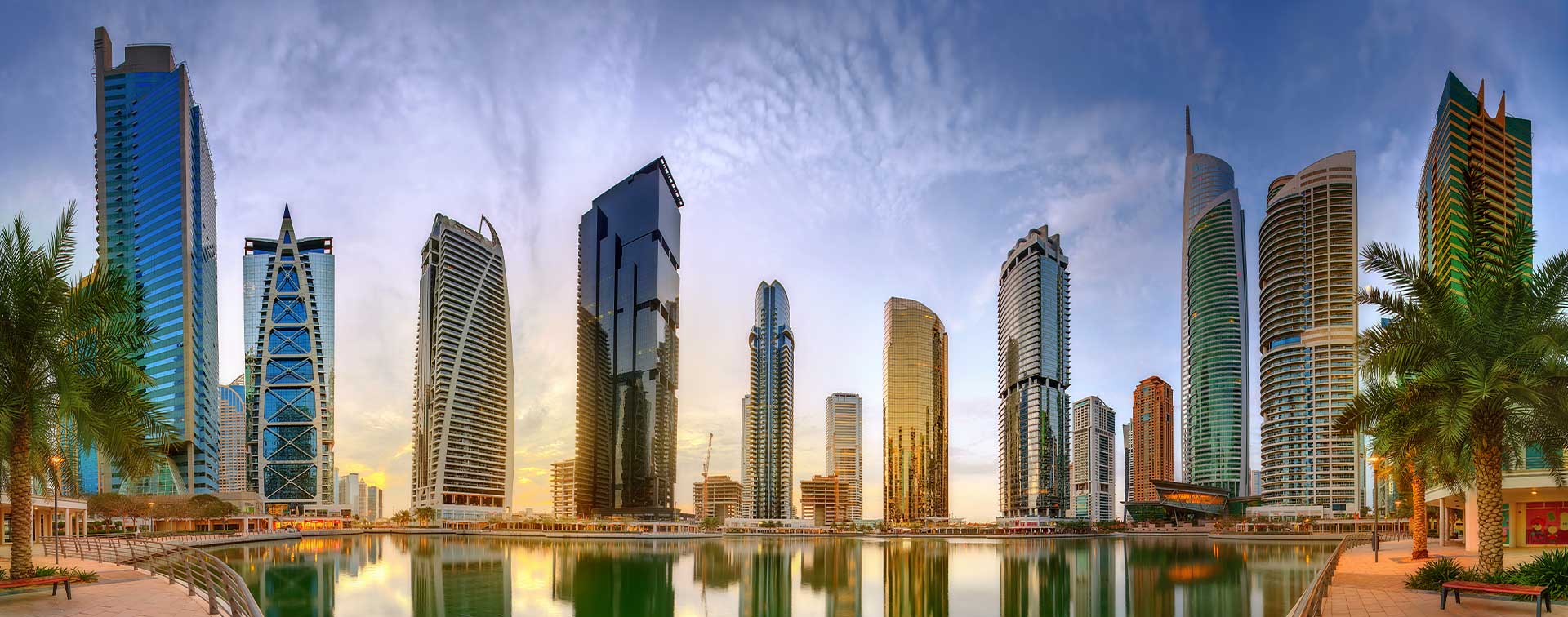
Dr. Robert Mogielnicki is a Senior Resident Scholar at the Arab Gulf States Institute in Washington and an Adjunct Assistant Professor at Georgetown University’s Walsh School of Foreign Service.
The member states of the Gulf Cooperation Council (GCC) continue to roll out ambitious initiatives and schemes to attract high-net-worth individuals and skilled expatriate professionals. These investment migration efforts and new labor market policies reflect part of a broader strategy to position GCC countries as hubs for global capital and talent. The region currently enjoys the financial wherewithal to make major strides in this domain: cumulative crude oil exports by GCC countries are likely to exceed USD 500 billion in 2022, with Saudi Arabia’s crude oil export revenues alone estimated to reach USD 287 billion.
The UAE is leading the race to strengthen its status as a hub for global wealth and talent. This GCC member country combines substantial hydrocarbon resources, vast sovereign wealth holdings, and a small population of about 10 million people. The UAE is set to attract 4,000 millionaires this year and ranks first on the list of countries with the highest projected net inflows of high-net-worth individuals, according to the Henley Private Wealth Migration Dashboard. More hedge fund managers are opting to relocate to Dubai, given the emirate’s good infrastructure, low taxes, and light regulation. Crypto firms and property managers are also flocking to Dubai.
On 18 April 2022, the UAE Cabinet approved an overhaul of the country’s entry and residence system, adding several new visa options and introducing other initiatives intended to increase the UAE’s attractiveness as a destination in which to live, work, and invest. The changes include the ability for visitors to stay 60 days (rather than the previous 30 days), an end to certain local sponsorship regulations, and an expansion of the golden visa program. The new system also significantly expands benefits and eligibility for family members of visa holders in the country. The changes will come into effect in September 2022.

Beyond introducing new mechanisms and schemes to facilitate investment migration, UAE officials have sought to better link the country to key global growth markets by signing comprehensive economic partnership agreements (CEPAs). These agreements enhance market access, lower tariffs, simplify customs procedures, establish clear and transparent rules, and encourage rules-based competition. Between February and July of 2022, the UAE signed CEPAs with India, Indonesia, and Israel. Emirati officials are negotiating similar agreements with South Korea and Türkiye, which is likely to increase the UAE’s attractiveness as an investment destination for high-net-worth individuals and businesspeople in these countries.
Other GCC states have rolled out similar investment migration and residence initiatives to those in the UAE. Earlier in 2022, Bahrain announced a Golden Residency Visa with the possibility of indefinite renewal. Individuals who have resided in Bahrain for five years and earn at least USD 5,306 per month, as well as retirees and specialized professionals meeting specific criteria, can qualify for the new visa program. In September 2021, Oman’s Ministry of Commerce, Industry and Investment Promotion launched an Investor Residency Programme to offer foreign investors and retirees long-term residence rights in the country. Omani officials signaled that the second phase of the program will extend long-term residence to innovators, creators, programmers, and entrepreneurs. The economic policymaking of smaller GCC states must be nimble and flexible to accommodate investor demands, especially amid the shadow of a larger, fast-growing Saudi market.
Saudi Arabia’s economy grew by nearly 10% in the first quarter of 2022, marking the fastest growth rate in a decade. The kingdom’s economy, which accounted for approximately 50% of the GCC region’s nominal GDP in 2020, is considered a high-potential market for many foreign firms and investors. The accelerated pace of social and economic reforms in the country have further increased the attractiveness of the Saudi commercial environment. The Saudi crown prince, Mohammed bin Salman, wants to transform the capital Riyadh into a greener, cooler city with twice the current population. Expatriates will constitute most of this population growth, potentially turning Riyadh into a more cosmopolitan urban center.
The visa requirements for GCC citizens visiting major travel and commercial hubs are likewise being eased. The UK announced that GCC state nationals will be the first to benefit from the UK’s new electronic travel authorization scheme beginning in 2023, ensuring that these visitors can enjoy visa-free travel across the UK. Both the UAE and Oman have signed sovereign investment partnerships with the UK.
Henley & Partners assists international clients in obtaining residence and citizenship under the respective programs. Contact us to arrange an initial private consultation.

Have one of our qualified advisors contact you today.
We use cookies to give you the best possible experience. Click 'Accept all' to proceed as specified, or click 'Allow selection' to choose the types of cookies you will accept. For more information, please visit our Cookie Policy.